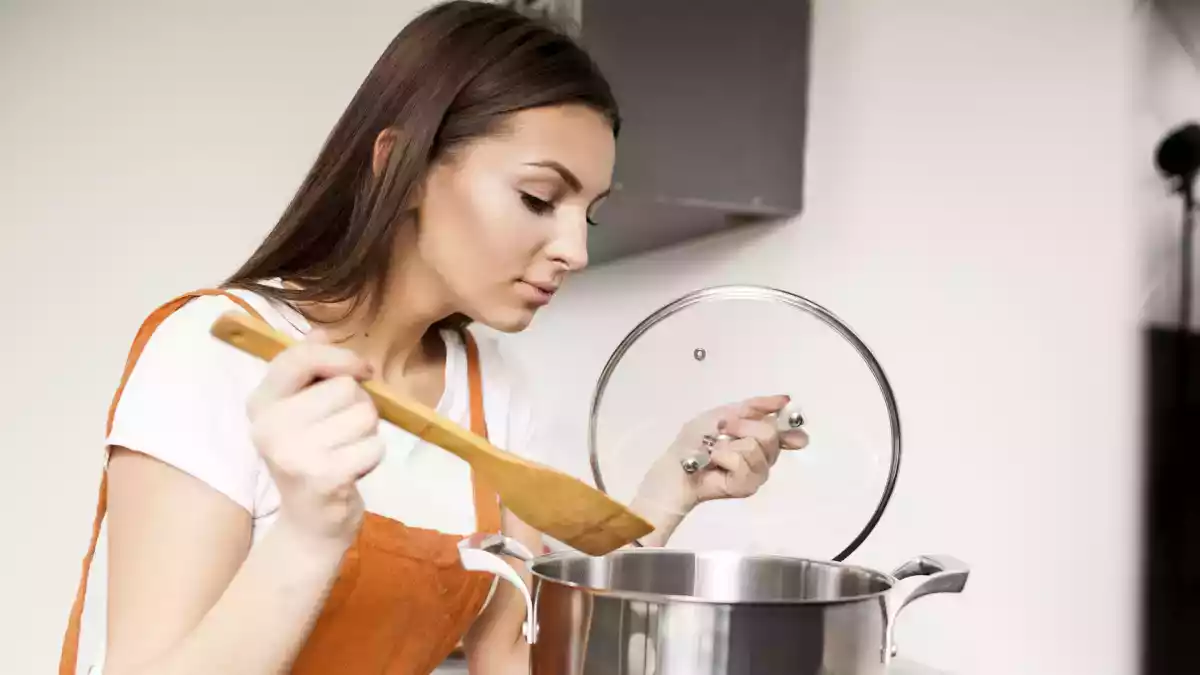Should water be boiled? When and when not to boil water in the kitchen

We put the pot on the fire, the water starts to heat up... and the question that many people ask themselves at that moment arises: Should I wait for it to boil or can I add the ingredient now?
The answer is not always the same. As in many aspects of cooking, it depends on the food, how it reacts to heat and the result we are looking for. Because it is not the same to introduce a hake fillet as potatoes, or to cook pasta as a broth. Here you have a clear starting point to know when to boil water and when it is better to start cold, depending on the food you are cooking.
When should water be boiled before
There are foods that appreciate going into water at 210°F/100 °C from the beginning. We usually look for fast cooking, good shape, bright colors and controlled times.
Pasta
Pasta needs plenty of boiling water from the start. The heat shock causes the outer starch to gel quickly, which prevents the noodles from sticking together and allows the inside to cook evenly. If the water is not hot enough, or if too little water is used, the temperature drops when the pasta is added and the cooking becomes uneven: some parts may become too soft while others remain hard.
Rice (boiled or pilaf style)
When we are looking for a loose rice, it is recommended that the water is already boiling when the grain is added. This way it maintains its structure, releases less starch and the final result is more uniform. Of course, we will have to take into account the variety of rice and the desired result. Basmati or long rice always in boiling water. Bomba rice, on the other hand, has other systems depending on the type of recipe.
Green leafy vegetables
Spinach, green beans, broccoli or peas: boiling water helps to fix the chlorophyll, maintains the intense green color, preserves nutrients and guarantees a pleasant texture. If, in addition, they are then cooled in ice water, the color is even brighter, the cooking is shortened and the texture is preserved.
Seafood
Shrimps, prawns, langoustines, Norway lobsters... To boiling water directly. The proteins coagulate quickly and we obtain a firm and juicy texture, without the risk of them becoming rubbery.
Delicate fish
Hake, cod or megrim fillets: to poach them, the ideal is to immerse them in hot liquid (170-200°F/80-90 °C), without boiling at full boil. In this way, the meat remains whole and does not fall apart.
Large crustaceans
Lobster, spider crab or crab: they are placed in boiling water to ensure rapid cooking, maintain the juices and reach the right point.
When it is best to start with cold water
There are cases in which it is convenient to heat the food little by little. The heat penetrates progressively and the cooking is homogeneous.
Potatoes and sweet potatoes
Starting from cold water allows the heat to reach the inside at the same rate as the outside, preventing the surface from softening or bursting prematurely.
Cassava (manioc)
Because of its fibrous and dense texture, it needs slow and progressive cooking to gelatinize the internal starches without making the external part pasty.
Root vegetables
Carrots, turnips, parsnips... Best from cold for even cooking, avoiding hard centers and soft edges.
Dried pulses
After soaking, they are cooked from cold to hydrate evenly and avoid premature hardening of the skin.
Meats for broths and stocks
In stocks and broths, starting from cold water favors the slow extraction of proteins, collagen and flavor. If started in boiling water, proteins coagulate too quickly and extraction is slower.
And the egg, with boiling water or not?
There is some debate here. Some cooks advocate starting with cold water to prevent the shell from cracking and to achieve uniform cooking, which is why it is the classic method in many cooking schools. Others prefer to place them in boiling water, as this makes them easier to peel, especially if the eggs are very fresh.
How about you?
Do you usually wait for the water to boil or do you prefer to start cold? Do you have your own tricks for cooking eggs, potatoes or seafood? Every kitchen has its own habits and little secrets. If you know any infallible method or have tried variations that work for you, tell us in the comments and share your experience with other cooks.
 Patricia González
Patricia González
Comments